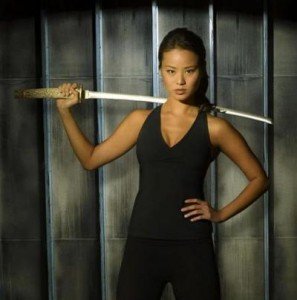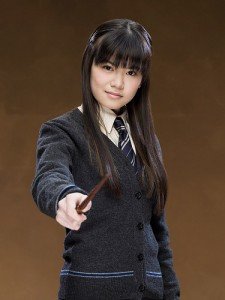Sherwood Smith has posted about the panel I was on at WFC San Diego (2011), “The Crystal Ceiling.” (an unfortunate title, if I must say so, and I must)
The Crystal Ceiling: Is there still a distinction between “women’s” and “men’s” fantasy and horror?
I found it interesting, and disappointing, that the panel was all women: Kate Elliott, Charlaine Harris, Nancy Kilpatrick, Jane Kindred, and Malinda Lo.I don’t know how many men volunteered, who picked the panelists, whether it was a man or a woman, but when I walked into that panel and saw all women getting up on the podium, I thought “Here’s our conclusion before a word is spoken.”
An interesting discussion follows in the comments. ETA: Juliet McKenna and Aliette deBodard also weigh in.
Charles Tan at Bibliophile Stalker has put up an audio file of the panel because he is awesome. Scroll down for the link; there are many other excellent links in this roundup post of World Fantasy Con/San Diego 2011.
I don’t have much yet to say about the panel beyond that the other panelists (Charlaine Harris, Malinda Lo, Nancy Kirkpatrick, & Jane Kindred) were fabulous and I thought the dynamic between panelists and between panel and audience went well — we all agreed we wanted to take a lot of questions and comments from the audience, and the audience had plenty of good things to say.
I’ll have more to expound upon about The Female Gaze vs. The Male Gaze in SFF, but I’m still working on that post. Suffice to say that I am not an essentialist: When I say Female and Male Gaze I’m talking about cultural gender issues and ways of seeing.
I very much appreciated how Charlaine Harris came right out and said she and other mystery & crime writers had experienced marginalization, and how they formed Sisters in Crime to combat their second class status. I often feel that too frequently when women writers and artists make such a statement that they are criticized for it, so I was impressed that Harris, in her powerful position as a New York Times #1 bestseller with besides that a hit tv show based on her books, was not only willing to but ready to speak out.
She later said to me, when we were outside briefly discussing how the panel had gotten onto the topic of Stephanie Meyer’s Twilight series: “I love to see women writers succeed.”
I do not think that gender plays no role in how writers’ works are assessed. This doesn’t mean gender always plays a role, but the thing about making any such statement for or against is that it is difficult if not impossible to prove that gender never plays a role or always plays a role in the way a reader may approach a work or judge it. Furthermore, the action of bringing up the possibility is itself fraught and political, moreso, I think, if a woman mentions it than if a man does.
One of the things I said on the panel was to paraphrase an provocative comment made in, I believe, Cheryl Morgan’s blog by Susan Loyal. I don’t recall the actual post. Discussing the question of how the work of women is received, she pointed out that in her experience of reading reviews and reader blogs, that work by men could be flawed AND still important, while work by women, if flawed, could therefore not be important.
Furthermore, back in March 2011, Niall Harrison on Strange Horizons did a breakdown of gender balance at book review venues in the sff field. Male writers receive a disproportionate share of review space. In the new age of social media where visibility plays a crucial role in determining success for a writer (in terms of being read), such a discrepancy should startle us, but unfortunately it seems all too familiar.
What this means, surely, is that VISIBILITY is the first obstacle or, if we combine visibility with Loyal’s statement about flaws and importance, it may be suggested that male writers are routinely judged to be more worthy of reviewing OR they may simply be the ones who are noticed and picked up to be reviewed while others are ignored, dismissed, or never seen at all.
Obviously many writers, both male and female, do not get the visibility we would wish for them to have. I note also that there are now a huge number of book blogs that specifically target the Young Adult, Romance, and Urban Fantasy/Paranormal readers, often read and written by women. I think it is not a coincidence that these genres have strong sales by taking women seriously and granting them importance as readers, as writers, and as characters. At the same time I see admiration for the books and sales numbers, I do also sometimes see a fair bit of hostility directed at these genres from outside.
Let me just suggest that issues of disparity remain an overall problem (see also this study of income disparity in the creative fields), and turn my attention specifically back to the sff field.
Are some readers inclined to be more critical of a book simply if the writer is a woman? Out of conscious bias, or perhaps subconscious bias? I don’t know, and I’m not sure how we can really tell.
Is there an issue with some women, as writers, not filtering their stories in a way that fits the perceived defaults within the male gaze? Smith defines the male gaze this way:
the male gaze is still the default cultural point of view. That means, whenever men look at is important, from persons to politics to entertainment. It is important for everybody. Whatever women look at is for women, of lesser significance.
A story may be seen as intrinsically flawed when it is more properly described as not being written from the male gaze. In such a case, it may be the female gaze that informs the story that is being denigrated. Such a reader may simply be unable see a story told from a different perspective than the male gaze as having the same intrinsic worth; it may be seen as badly written or plotted, or as problematic because it is not of interest to such a reader , or as lacking importance. A standard if cliched example might be that a story in which swords or guns are described in detail as a means to enhance character and action would be seen as exciting and meaningful while one that highlighted descriptions of midwifery or sewing and clothing as a way to enhance character and action might be described as dull or wordy or tangential or, worst, girly.
An argument can also be made, however, that mixed or bad reviews given women writers are no different from mixed and bad reviews given to male writers within our field in the same way that a good review is a good review regardless of the gender of the reviewer, reader, and writer.
How do the statistical discrepancies fit into this? I don’t know. But if women writers are being reviewed less than men writers, except in fields designated as “female driven,” then I submit there may be a problem that can only be fixed by recognition that there are discrepancies and by conscious effort to acknowledge gender bias and work to change the ways we look at what matters and what is worthy of inclusion in the stories we think are important enough to pay attention to.






